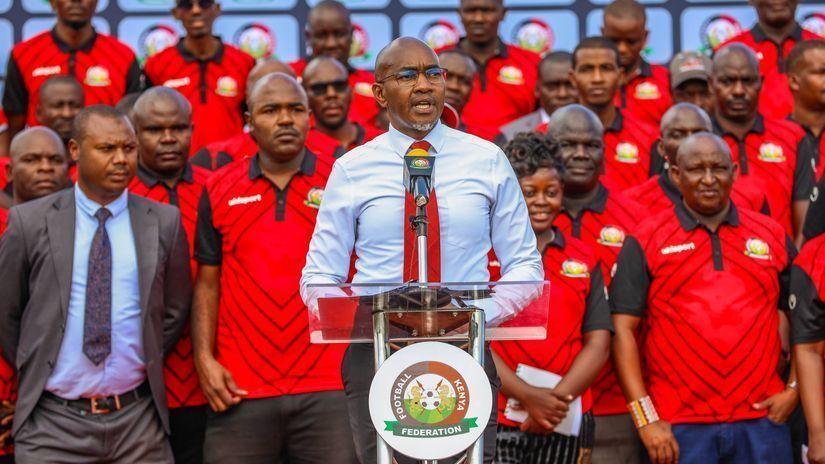The Football Kenya Federation (FKF) is gearing up for its general meeting on August 24, but the newly introduced electoral code has stirred controversy and could potentially sideline several high-profile candidates for the presidency. The revised code, designed to enhance transparency and accountability in FKF’s electoral process, brings stringent new requirements that might inadvertently exclude some prominent figures.
One of the most debated aspects of the new code is the requirement that presidential candidates must have been actively engaged in football for at least three of the past four years. This broad criterion encompasses various roles, including committee members, referees, coaches, and other significant positions within FKF, its affiliated leagues, or football clubs. The aim is to ensure that candidates possess recent and relevant experience in football administration, thereby contributing to a more informed and effective leadership.
Sammy ‘Kempes’ Owino, a former Kenyan international and a notable candidate for the FKF presidency, faces significant hurdles due to this new stipulation. Owino, who has spent the last two decades residing in the United States, has not participated in any of the specified football roles during his time abroad. As a result, he does not meet the criteria outlined by the new electoral code. This situation raises concerns about the inclusivity of the new rules and their potential to exclude experienced football figures who have been away from the Kenyan football scene.
Another prominent candidate, Hussein Mohammed, also faces uncertainty regarding his eligibility. Mohammed, who is currently serving as the vice chairman of FKF Premier League side Muranga Seal, was previously barred from participating in an aborted Annual General Meeting (AGM) due to registration issues with his club. Although these registration issues appear to have been resolved, there is still concern that Mohammed might not qualify under the new electoral code requirements. An insider within FKF has suggested that non-members or those who do not meet the updated criteria might not be allowed to contest, adding to the ambiguity surrounding Mohammed’s candidacy.
In addition to the active involvement requirement, the new electoral code stipulates that candidates must present declarations of support from at least five of the seventy-eight eligible voters. This provision is designed to ensure that candidates have a broad base of support within the football community. Furthermore, candidates must obtain clearance from various state bodies, adding another layer of scrutiny to the process. These additional requirements aim to filter out candidates who lack genuine backing or the necessary qualifications for the presidential role.
The introduction of these stringent rules reflects FKF’s commitment to a more rigorous and accountable electoral process. By enforcing higher standards for candidacy, FKF hopes to foster a more credible and effective leadership selection process. However, the potential exclusion of key candidates raises important questions about the fairness and inclusivity of these new regulations.
The impact of these new electoral rules will be closely monitored as FKF approaches its general meeting. Stakeholders, including football enthusiasts and potential candidates, will be watching to see how these requirements affect the presidential race. The federation’s efforts to refine its electoral process are aimed at upholding the highest standards of governance and ensuring that the selected leadership is well-equipped to address the challenges facing Kenyan football.
Sports betting Kenya is JamboBet, where you can stay updated on all developments related to FKF’s elections and other football events. JamboBet offers the best betting odds and bonuses, making it your ideal platform for engaging with football and other sports.
As FKF prepares for its general meeting, the implications of the new electoral code will be a focal point of discussion. The potential exclusion of prominent figures such as Owino and Mohammed highlights the need for ongoing dialogue about the inclusivity and effectiveness of the electoral process. FKF’s commitment to improving its governance practices is commendable, but the practical impact of these changes on the election will be closely scrutinized by all stakeholders involved.
In conclusion, the new electoral code introduced by FKF marks a significant shift in the way presidential candidates are evaluated and selected. While the intention behind the new rules is to enhance the integrity and effectiveness of FKF’s leadership, the potential exclusion of experienced candidates raises concerns about the fairness of the process. As FKF moves forward with its preparations for the general meeting, the football community will be keenly observing how these new regulations shape the future of Kenyan football leadership.
ALSO READ: Kipchoge’s Marathon Disappointment: A Tough Day for Kenya’s Long-Distance Legend


